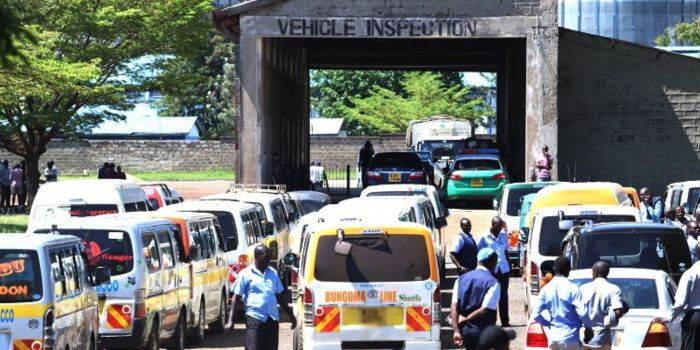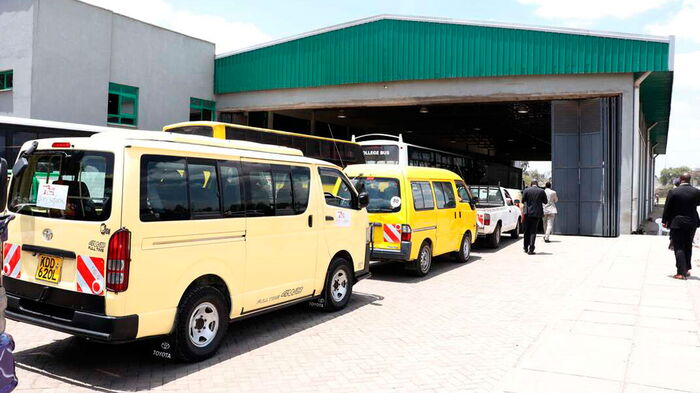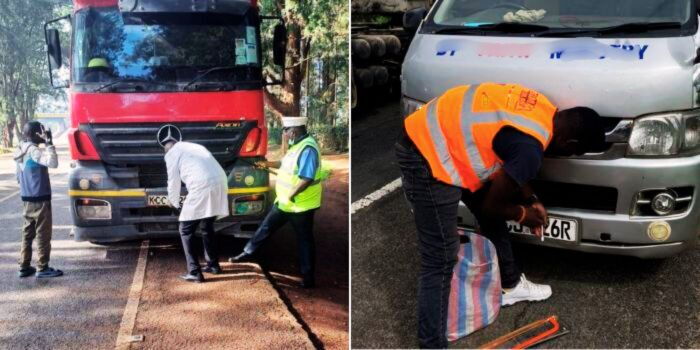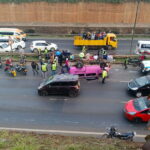Kenya is preparing to usher in a new era of road safety and transport accountability with a series of groundbreaking traffic regulations proposed by the government. Spearheaded by Transport Cabinet Secretary Davis Chirchir, the proposed reforms will affect everything from motor vehicle inspections and school transport to drunk driving laws and commercial vehicle operations.
Dubbed the Traffic (Motor Vehicle Inspection) Rules, 2025, the draft regulations are part of a broader strategy to overhaul how vehicles are managed on the road, with safety, environmental sustainability, and roadworthiness as top priorities.
📢 Follow Us on Social Media
A key highlight of the new proposal is the requirement for all vehicles older than four years, including private, commercial, school, and public service vehicles (PSVs), to undergo mandatory, periodic inspections. These checks will be conducted at government-approved or licensed private testing centres.
Inspections will also be enforced at key stages in a vehicle’s life cycle such as: Before registration, After an accident, During ownership changes and Following any structural modifications
📰 Also Read This:
Vehicles that pass inspection will be issued a compliance sticker, which drivers must display as proof when stopped by traffic officers. Salvage vehicles, often brought back onto roads after serious accidents, will face stricter re-registration protocols.
To prevent manipulation of results and corruption in the inspection process, the government will regulate private testing centres and individual inspectors, subjecting them to licensing, oversight, and penalties for misconduct.
Non-compliance will attract fines, vehicle impoundment, or even licence suspension, signaling a no-nonsense approach to restoring discipline on Kenyan roads.
The Traffic (School Transport) Rules, 2025 aim to significantly improve the safety of schoolchildren by establishing a clear regulatory framework.
Among the new mandates: Seat belts for all passengers, Fire extinguishers and emergency exits, Telematics for real-time tracking, Approved boarding procedures and restricted operating hours, Strict qualifications for school drivers and attendants and Uniform colour coding and signage for school buses
The rules prohibit the use of school buses for unauthorized purposes, ensuring children are transported under controlled, safe conditions.
To address the persistent problem of alcohol-related road accidents, the Traffic (Drink Driving) Rules, 2025 have been proposed to formalize the process of identifying and punishing intoxicated drivers.
The proposed rules set clear alcohol limits, legalize the use of breathalysers, blood, and urine tests, and detail procedures for: Administering tests, Handling refusal to comply and Penalizing repeat offenders.
Courts will be empowered to accept results from certified devices, while chronic offenders may face licence revocation.
Separately, the government is drafting the National Transport and Safety (Operation of Commercial Vehicles) Regulations, 2025 to improve safety in the logistics and PSV sectors.
The regulations will include: Work-hour limits for drivers, Mandatory electronic logging systems, GPS-based cargo tracking.
These rules aim to reduce fatigue-related accidents and promote accountability among long-distance and commercial vehicle operators.
The draft rules are expected to undergo public participation and stakeholder consultations before they are finalized and enacted in 2025. Once implemented, they will mark one of the most comprehensive overhauls of Kenya’s traffic laws in recent years.
Motorists, schools, and transport companies are encouraged to begin preparing for the changes to avoid last-minute non-compliance. As the country moves toward safer roads, the emphasis is clear: accountability, technology, and enforcement are the road to the future.



🔥 Affordable Digital Services in Kenya – 2025
Need a website or creative support? We offer high-quality services at the best market rates in Nairobi:
- Web Development: From KES 15,000 – Blog, Church, Company or NGO websites
- Web Hosting (1 Year): KES 2,500 – 6,000 with SSL + email
- Domain Name (.com): KES 1,000 – 1,500
- Graphic Design (Posters/Flyers): KES 500 – 2,000
- Video Editing (YouTube & Socials): KES 1,000 – 7,000
✅ Company, Church & Blog websites are FREE (Terms apply – you only pay hosting & domain).
📞 Let's talk on WhatsApp: +254 754 537854






